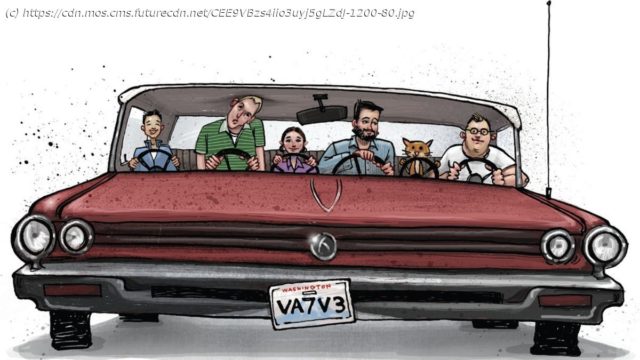It's well-known that Valve doesn't work like other game studios. Valve's flat corporate structure means that, as its own New Employee Handbook reads, « we don’t have any mana
Audio player loading…
It’s well-known that Valve doesn’t work like other game studios. Valve’s flat corporate structure means that, as its own New Employee Handbook (opens in new tab) reads, « we don’t have any management, and nobody ‘reports to’ anybody else. We do have a founder/president, but even he isn’t your manager. » The symbol of this freedom is the office’s wheeled desks, which allow employees to form ad hoc teams by moving together when someone—anyone—proposes a project that interests others, then wheeling away once they decide to move on.
It sounds like a wonderful place to work, free from hierarchy and bureaucracy. However, according to a new video by People Make Games (opens in new tab) (a channel dedicated to investigative game journalism created by Chris Bratt and Anni Sayers), Valve employees, both former and current, say it’s resulted in a workplace two of them compared to The Lord of The Flies.
Part of the issue is the fact Valve uses stack ranking, an employee evaluation technique that a Blizzard employee was recently fired for protesting against. Every year, Valve’s staff judge each other through a series of meetings that result in an overall ranking of every employee, and that ranking determines who receives higher salaries in the next year. With no managers to communicate exactly how the judgements should be made, or how the resulting pay changes will be decided—presumably by the board of directors, which Valve still has—the effects on employee behavior seem quite noticeable.
« One of the most interesting ways you could see it seeping in was when people specifically did riskier projects near the beginning of the year, » a former Valve employee told People Make Games. « And then they’d go back to the more well-known ones as it gets closer to review time because recency bias would make people focus on that stuff. »
Another effect was to reinforce Valve’s lack of diversity. More than one interviewee highlighted that, even compared to the rest of the videogame industry, Valve is an extremely white and male company. While at other studios a diverse-hiring initiative would come from management, at Valve it had to come from the employees themselves. As an interviewee said, « Valve’s structure is what makes it difficult to gain momentum on anything where the value-add isn’t immediately obvious to certain people though, and that certainly includes any project where the word ‘diversity’ is mentioned.
Home
United States
USA — software Valve's unusual corporate structure causes its problems, report suggests






